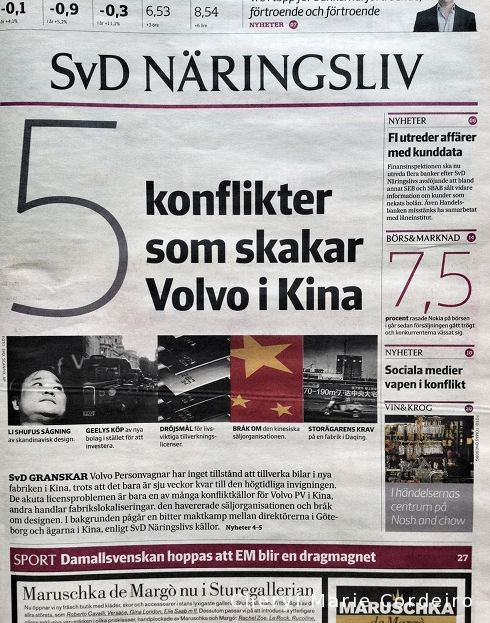In SvD 19 April 2013, Näringsliv.
Conflict and powerplay between Volvo Cars and Geely as presented in the press.
Text & Photo © CM Cordeiro 2013
‘Five conflicts stirring Volvo in China’
Just recently this headline in large fonts headed the front page of the business section of one of Sweden’s most respected morning news papers. It was obvious that something had changed.
As one of many who keep a keen interest in the economic and geographic spatial reconfigurations of the global automobile industry, I did not expect a smooth process of acquisition of Volvo Cars by Geely from 2010 onwards.
Research literature charts a five times more likely narrative of a failed attempt at mergers and acquisitions than one of success. In the case of the Swedish then American owned Volvo Cars being acquired by Chinese Geely, language, culture, values and outlook on life per se are but the tip of the ice-berg to the multiple foundational layers of differences that need to be disentangled in this corporate marriage.
